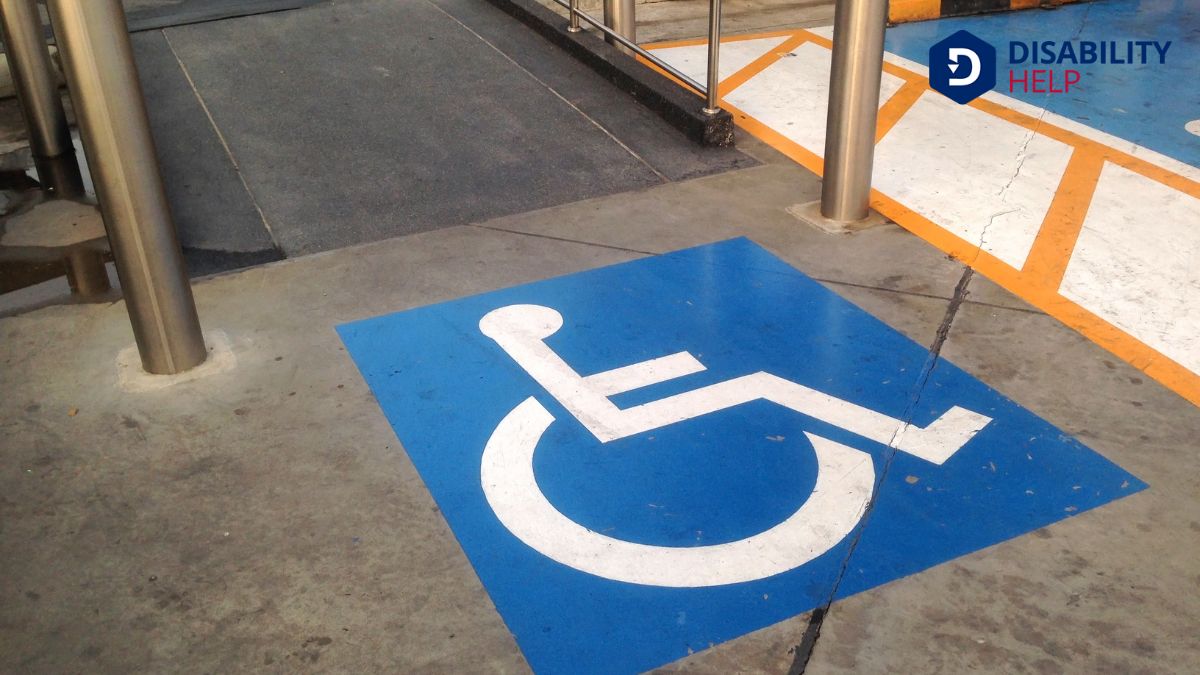When we consider the complexities of workplace accessibilityThe design of workplaces to be usable by individuals with disabilities, including physical access, t..., a common question arises: Does the ADA mandate businesses to provide transportation for disabled employees? While the ADA doesn't explicitly require this, it does call for reasonable accommodationsModifications or adjustments in healthcare settings to support patients with disabilities.. This can sometimes include transportation solutions, provided they don't cause undue hardshipA legal concept that refers to significant difficulty or expense imposed on an employer or service p... for the employer. Let's explore how employers navigate these requirements and what options are available to support disabled employees effectively.
Key Takeaways
- The ADA does not mandate businesses to provide transportation for disabled employees.
- Employers must consider reasonable transportation accommodations if barriers impact job performance.
- Each transportation request requires an individualized assessment for feasibility and undue hardship.
- Employers and employees must engage in an interactive process to explore transportation solutions.
- Solutions may include ride-sharing services, adjusted schedules, or accessible public transport options.
Understanding the ADA's Core Principles

The core principles of the Americans with Disabilities Act (ADA)A U.S. law that prohibits discrimination against individuals with disabilities in all areas of publi... are vital for us to grasp in order to secure compliance and foster inclusive workplaces.
At its heart, the ADA seeks to eliminate discrimination against individuals with disabilities by guaranteeing equal opportunities in employment, public accommodations, and more.
We need to understand that the ADA covers a broad spectrum of disabilities, both visible and invisible. By appreciating this, we can better ensure our workplaces are welcoming and accessible to all employees.
It's essential that we also recognize the ADA's emphasis on removing barriers, which means actively identifying and addressing potential obstacles that could hinder an employee's ability to perform their job effectively.
Through our commitment, we promote an environment of equityFairness and justice in the way people are treated, especially in the allocation of resources and op... and respect.
Defining Reasonable Accommodations
Let's explore what reasonable accommodations entail when it comes to transportation for disabled employees.
We'll clarify the obligations employers have in this area and how they can effectively evaluate accommodationAdjustments or modifications provided to individuals with disabilities to ensure equal access and pa... requests.
Understanding Reasonable Modifications
When discussing reasonable modifications under the ADA, it's essential to recognize their role in guaranteeing equal accessThe principle that all individuals, including those with disabilities, should have equal opportunity... and opportunity for disabled employees.
We need to understand that reasonable modifications are adjustments or changes that enable employees with disabilities to perform their jobs effectively. These modifications might include altering workspaces, adjusting schedules, or providing assistive technologies.
It's our responsibility to guarantee that these accommodations are effective without imposing undue hardship on the business.
We should consider each request on a case-by-case basis, taking into account the specific needs of the employee and the resources available.
Employer Obligations Explained
Although managing employer obligations under the ADA might seem complex, understanding what constitutes reasonable accommodations is essential. We need to focus on facilitating an inclusive workplace.
Reasonable accommodations are adjustments or modifications that enable employees with disabilities to perform their job duties effectively. They can include altering workspaces, providing assistive technologies, or modifying work schedules.
It's vital for us to assess each situation individually. Accommodations should be practical and not impose undue hardship on the business.
Dialogue with employees is key; understanding their needs allows us to tailor solutions that work for both parties. Remember, our goal is to support employees in contributing fully to our organization.
Evaluating Accommodation Requests
To effectively evaluate accommodation requests, we must first understand what makes an accommodation reasonable under the ADA. The term "reasonable accommodation" refers to adjustments or modifications that enable employees with disabilities to perform essential job functions.
It's essential to recognize that accommodations shouldn't impose an undue hardship on the business.
When evaluating transportation requests, we should assess whether providing transportation is vital for the employee to access the workplace or perform their duties. We need to examine factors like cost, feasibility, and the nature of the employee's role.
Engaging in an interactive process with the employee is significant. By discussing their needs and exploring possible solutions together, we can find accommodations that are both effective and reasonable, fostering an inclusive work environment.
The Role of Transportation in Accessibility
Ensuring accessibilityThe design of products, devices, services, or environments to be usable by people with disabilities.... means recognizing the vital role transportation plays in the daily lives of disabled employees. We can agree that reliable transportation allows individuals to access employment opportunities, maintain independence, and participate fully in society.
For those of us advocating for accessibility, understanding the transportation barriers our colleagues face is essential. Accessible transportation isn't just about getting from point A to point B; it's about ensuring that every journey is feasible for everyone.
When transportation options are limited or inaccessible, disabled employees may find it difficult to maintain consistent work attendance, impacting their career growth and satisfaction.
Legal Precedents and Court Rulings
Let's explore how key legal decisions have shaped ADA transportation requirements for disabled employees.
We'll look at influential court case outcomes that have set important precedents in ensuring accessible transportation.
These rulings guide us in understanding our legal obligations and rights under the ADA.
Key Legal Decisions Impacting
Since legal precedents often shape how the Americans with Disabilities Act (ADA) is applied, understanding key court rulings is vital for guaranteeing compliance with transportation requirements for disabled employees.
We've found that various decisions provide insights into the complexities of these obligations. For example, rulings have clarified that employers must consider reasonable accommodations, which can include transportation, if it doesn't pose an undue hardship.
These decisions emphasize evaluating each situation individually to determine what's feasible. It's important for us to stay informed about these legal interpretations to navigate the responsibilities effectively.
Influential Court Case Outcomes
When examining influential court case outcomes, we gain valuable insights into how legal precedents shape ADA transportation requirements for disabled employees.
For instance, in the case of *Colwell v. Rite Aid Corp.*, the court ruled that employers aren't obligated to provide transportation but must guarantee reasonable accommodations for accessible work environments. This outcome emphasizes that while transportation isn't explicitly required, employers must still support accessibility effectively.
In another case, *EEOC v. Convergys Corp.*, the court determined that employers could be responsible if transportation barriers directly impact an employee's ability to perform job tasks.
These cases highlight the nuanced nature of ADA requirements. By understanding these rulings, we can better navigate the complex landscape of guaranteeing equitable employment opportunities for disabled individuals.
Employer Responsibilities and Limitations
While ensuring compliance with the ADA, we must recognize that employers are tasked with specific responsibilities and face certain limitations when providing transportation accommodations for disabled employees.
Our primary responsibility is to engage in an interactive process to assess and address the individual needs of our employees. We should explore reasonable accommodations, which might include modifying work schedules or considering alternative transportation solutions.
However, it's essential to highlight that employers aren't required to provide personal transportation or incur undue hardship. This means if a proposed accommodation is excessively costly or logistically challenging, it may not be deemed reasonable.
Clear communication and documentation are vital in steering these responsibilities. By understanding these boundaries, we can foster a supportive work environment while remaining compliant with the ADA.
Evaluating Transportation Options
Understanding employer responsibilities sets the stage for evaluating transportation options for our disabled employees.
We must explore various transportation solutions that align with the ADA's requirements while considering the unique needs of our workforce. Options might include public transportation with accessible features, ride-sharing services offering specialized vehicles, or even company-sponsored shuttle services tailored to accommodate disabilities.
We should assess each option's feasibility, cost-effectiveness, and accessibility. Collaborating with local transit authorities or private transportation providers can yield valuable insights and partnerships.
It's essential to engage with our employees to understand their specific challenges and preferences. Gathering this feedback allows us to tailor transportation solutions that enhance inclusivity and guarantee everyone can access their workplace comfortably and reliably.
Let's prioritize effective, equitable transportation solutions.
Best Practices for Supporting Disabled Employees
To effectively support disabled employees, we must implement best practices that create an inclusive workplace.
First, let's guarantee open communication by encouraging employees to express their needs without fear of judgment. This helps us tailor accommodations to each individual's requirements.
Providing training for all staff on disability awareness is essential, as it fosters empathyThe ability to understand and share the feelings of another, particularly important in understanding... and understanding.
Next, we should make our physical workspace accessible. This includes making sure that entrances, workstations, and restrooms are user-friendly for everyone.
Additionally, offering flexible work arrangementsWork schedules that allow employees with disabilities to manage their health and job responsibilitie..., like remote work or adaptable schedules, can greatly enhance accessibility.
Finally, establishing a feedback loop allows us to continuously improve our efforts. By listening and adapting, we can create an environment where all employees thrive and feel valued.
Navigating Compliance Challenges and Solutions

As we focus on creating an inclusive workplace for disabled employees, it's important to address the complexities of ADA compliance. Maneuvering through these challenges requires a clear understanding of our responsibilities and proactive strategies.
The ADA doesn't specifically mandate transportation for disabled employees, but it does require reasonable accommodations, which can sometimes include transportation solutions.
We must assess each situation individually, considering factors like job functions, employee needs, and available resources. Collaboration with employees is essential to finding effective solutions, whether it's adjusting work hours to align with accessible transportation options or exploring ride-sharing partnerships.
Staying informed about legal requirements and potential accommodations helps us foster an equitable environment. Let's prioritize open communication and creative problem-solving to guarantee compliance and support for all employees.
Conclusion
In wrapping up, we've seen that while the ADA doesn't explicitly require businesses to provide transportation for disabled employees, it does urge us to engage in a thoughtful dialogue about reasonable accommodations. By evaluating each situation individually, we can guarantee fair access to employment. Let's work together to explore feasible solutions that support our colleagues and foster an inclusive work environment. Remember, it's about creating opportunities, not imposing undue hardships.






